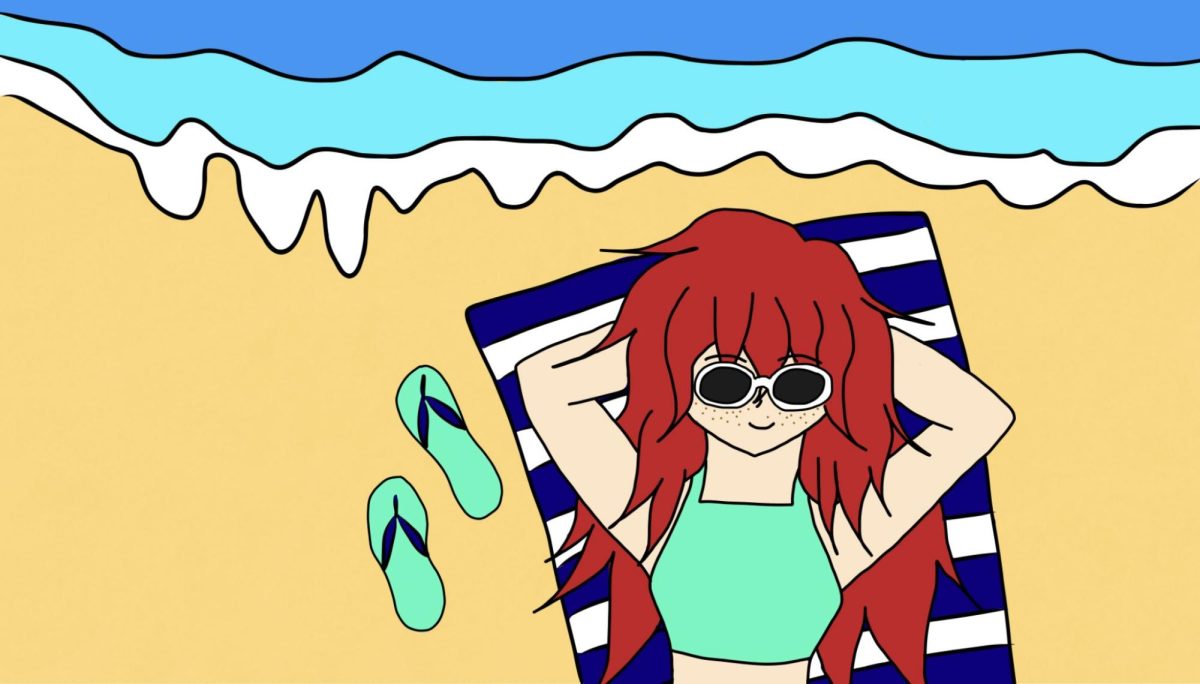As Kent State’s spring break starts on March 10, many students flock toward sunnier weather like Florida or Mexico for their first time traveling without family.
Kent State Sergeant Vance Voyles, who worked as a detective for 12 years with the Orlando Police, offered safety tips for students traveling this spring break.
“The basic things of any kind of travel: charge your phone before you go out, carry ID on you all the time,” Voyles said. “If you’re staying in a hotel, have those keys with you and proof that you’re at that hotel.”
Since the weather will be warmer it’s important to keep the temperature in mind, remember to stay hydrated and apply sunscreen.
“Wear appropriate clothes,” Voyles said. “You’re coming from Ohio and going down to Florida. It’s going to be hot.”
Rachel Czaplicki, a junior majoring in molecular and cellular biology, went on a spring break trip with her friends last year. They drove from Ohio to Fort Lauderdale. While on the road, they made sure to have their insurance and AAA cards on hand.
“Make sure your friends and family have your location in case anything happens, and make sure you have your insurance card with you and to not have too much cash on you,” Czaplicki said.
Spring break comes at a time when Ohio weather is on the colder side, so for many students, hitting the beach and swimming is top on their list.
According to the National Weather Service, 19 people on average die from rip currents in Florida. A good way to make sure you stay safe is to pick a spot on the beach by a lifeguard chair.
“Rip currents are no joke in Florida, so if you’re at the beach you’re out into the water,” Voyles said. ”Even for strong swimmers, they can get caught up in a rip current.”
Voyles mentioned that students from Ohio aren’t normally around beaches, so they don’t have as much experience as locals when it comes to the strong currents, which is why it’s important to understand the risk and what to do in an emergency.
The proper way to get out of a rip current is to swim parallel to the shore until out of the current and then swim diagonally back to shore.
Some other important things to note while on vacation are the laws in the place you’re visiting. For example, anyone of legal age can use marijuana in Ohio, but in Florida it’s not legal. This means the usage of marijuana, even if you are over 21, is considered using an illegal drug in Florida.
“If you or one of your friends have the idea that maybe the police would help, they will be okay, so don’t be afraid to call the police,” Voyles said. “For instance, if you’re drinking underage and something bad has happened to one of your friends, call the police. Yeah, you might get a ticket, so what? Their safety is more important than your ticket.”
The punishments for getting a ticket for underage drinking or not following open container laws in Florida are the following: fines, community service, license suspension, alcohol education programs and possible jail time. Fines for first time offense range from $200-$300.
Rebecca Balistreri, a senior majoring in digital media production, attended a spring trip last year with her two best friends. Balistereri said it is important to not take drinks that weren’t poured for you and to know your alcohol limit.
“The precaution I took in Nashville was getting canned drinks, so going up to the bar and having them crack into it in front of you instead of pouring it,” Balistreri said.
Voyles said there is a zero-tolerance policy for spring breakers at Fort Lauderdale and Daytona Beach, where if you get a ticket, you go to jail and can be arrested for underage drinking, drunk driving, indecent exposure, public urination and illegal drug use.
Czaplicki and her friends walked most places, but took extra precaution when using other transportation.
“If we uber, we made sure they were a reputable source, so they had good reviews and we never Uber alone,” Czaplicki said.
While on the trip, Balistreri noted she always saw the flashing lights of cop cars and it made her feel extremely safe, knowing in an emergency, airside assistance would be seconds away. Balisteri said most of the bars on Broadway felt very safe especially with the police officers being nearby.
“As someone who was 21 and under the influence walking along the streets, I felt like the cops weren’t out to get you, but to help you,” Balistreri said.
Abigail Kress is a reporter. Contact her at [email protected].



